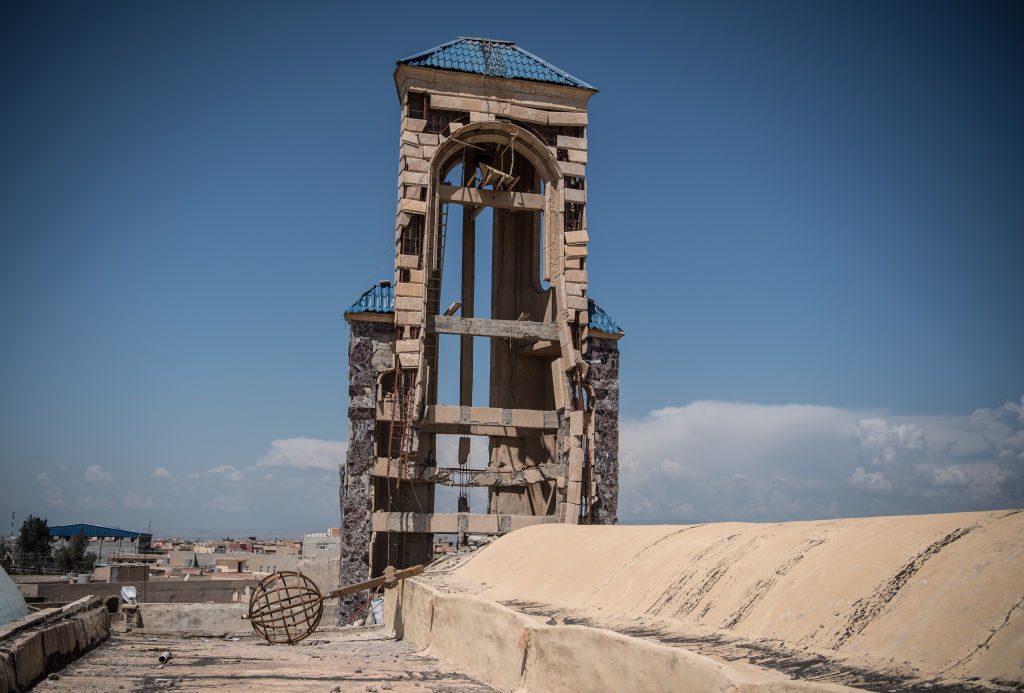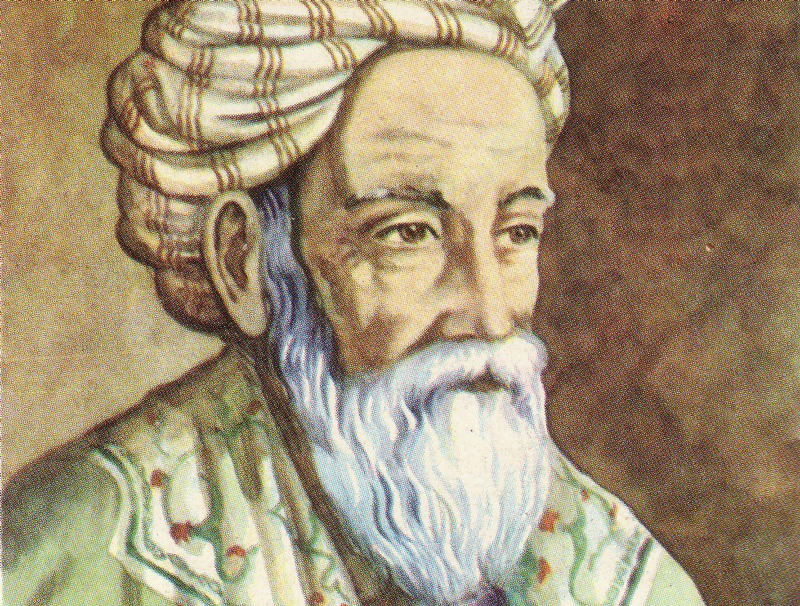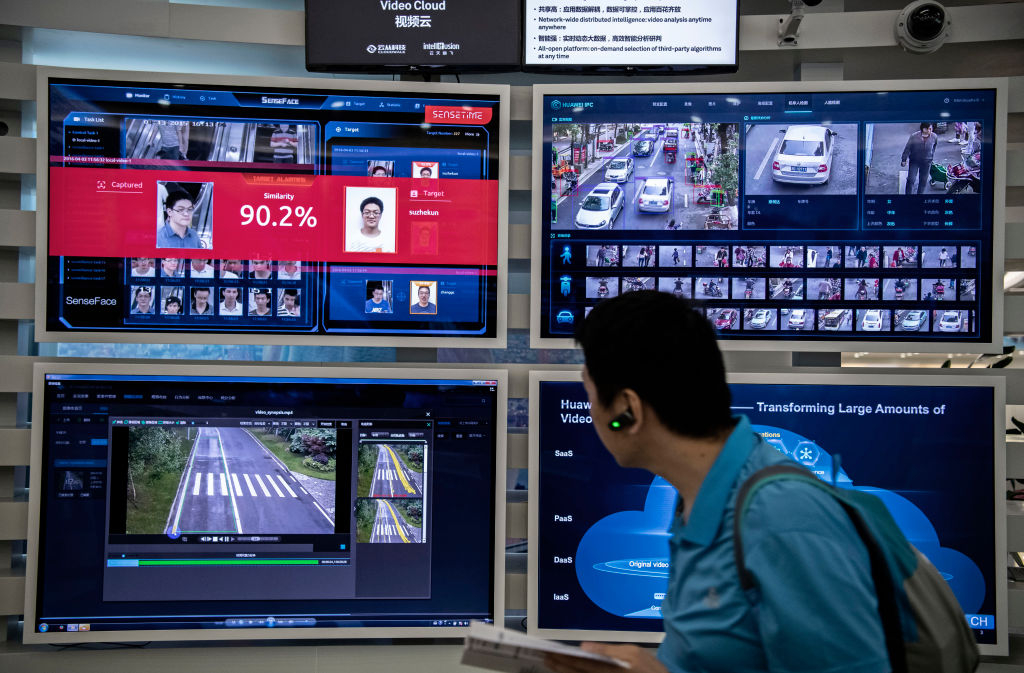by Giulio Meotti • August 18, 2019 at 5:00 am
"I don't believe in these two words [human rights], there are no human rights. But in Western countries, there are animal rights. In Australia they take care of frogs....Look upon us as frogs, we'll accept that — just protect us so we can stay in our land." — Metropolitan Nicodemus, the Syriac Orthodox archbishop of Mosul, National Catholic Register.
"Those people are the same ones who came here many years ago. And we accepted them. We are the original people in this land. We accepted them, we opened the doors for them, and they push us to be minorities in our land, then refugees in our land. And this will be with you if you don't wake up." — Metropolitan Nicodemus.
"Threats to pandas cause more emotion" than threats to the extinction of the Christians in the Middle East. — Amin Maalouf, French-Lebanese author, Le Temps.

Most Christian churches in and around Mosul, Iraq were desecrated or destroyed by ISIS. Pictured: The heavily damaged bell tower of Saint John's Church (Mar Yohanna) in the town town of Qaraqosh, near Mosul, on April 16, 2017. (Photo by Carl Court/Getty Images)
Convert, pay or die. Five years ago, that was the "choice" the Islamic State (ISIS) gave to Christians in Mosul, then Iraq's third-largest city: either embrace Islam, submit to a religious tax or face the sword. ISIS then marked Christian houses with the Arabic letter ن (N), the first letter of the Arabic word "Nasrani" ("Nazarene," or "Christian") . Christians could often take no more than the clothes on their back and flee a city that had been home to Christians for 1,700 years.
Two years ago, ISIS was defeated in Mosul and its Caliphate crushed. The extremists, however, had succeeded in "cleansing" the Christians. Before the rise of ISIS, there were more than 15,000 Christians there. In July 2019, the Catholic charity, Aid to the Church in Need, disclosed that only about 40 Christians have come back. Not long ago, Mosul had "Christmas celebrations without Christians".
by Amir Taheri • August 18, 2019 at 4:00 am
Iran is one of few countries in the world where the list of celebrities at any given time includes a number of poets and where poetry recitals draw crowds that compete with those of pop-music concerts.
One of the first acts of Khomeini's regime was to have the young poet Saeed Soltanpour, abducted from his wedding ceremony, and executed on a spurious charge of "Communist militancy." Later, the poet Rahman Hatefi-Monfared, alias Heydar Mehregan, also a noted journalist, was put to death under torture in one of Khomeini's prisons.
Celebrating [Esmail ] Khoi's great poetical achievement would be a fit tribute to what three generations of Persian poets have achieved during almost a century of exceptional creativity. Nobel judges should not miss the opportunity to share the joy that modern Persian poetry has given lovers of poetry all over the world.

Whatever you may think of Iran, you are likely to acknowledge it as one of the oldest homelands of poetry. Any list of top poets from all over the world is likely to include at least one or two Persian names -- say Omar Khayyam or Molavi (Rumi). Pictured: Omar Khayyam. (Image source: Wikimedia Commons)
Whatever you may think of Iran, you are likely to acknowledge it as one of the oldest homelands of poetry. Any list of top poets from all over the world is likely to include at least one or two Persian names -- say Omar Khayyam or Molavi (Rumi). Goethe believed that poetry has reached its peak of beauty with Hafez of Shiraz.
I know of only two countries, Iran and Russia, where poetry still finds a mass audience and poets could attain celebrity status.
Ask any Iranian who the persons they most admire are and you are likely to hear a list of poets -- from Ferdowsi and Saadi centuries ago to Iraj Mirza and Forugh Farrokhzad more recently. For the average Iranian, the poet is not only a creator of beauty but also the guardian of the nation's conscience. Iran is one of few countries in the world where the list of celebrities at any given time includes a number of poets and where poetry recitals draw crowds that compete with those of pop-music concerts.
by Gordon G. Chang • August 17, 2019 at 5:00 am
The People's Republic of China, nonetheless, is already an AI powerhouse, and for America to maintain its edge—and to prevent U.S. tech from being used for exceedingly disturbing purposes —Washington should force U.S. companies to end cooperative AI projects in China.
The West should be seriously concerned: whoever wins at AI will both dominate the global economy and field the most destructive conventional military force.
Unfortunately, American companies are helping China's leaders in what many call—correctly—crimes against humanity. For instance, AI researchers from Microsoft, Rensselaer Polytechnic Institute, and Michigan State University gave keynote speeches at the Chinese Conference on Biometric Recognition in Xinjiang in August of last year on facial recognition, a social-control technology.
Some of Google's research is in China. The company has three AI operations there: the Google AI China Center in Beijing, established in 2017, and partnerships with China's two premier educational institutions, Peking University and Tsinghua University....If the labs remain open, the net flow of AI learning will be out of the U.S. into China.
Moreover, Chinese researchers, if they could not work for American companies in China, would not, as Vox suggests, necessarily find employment in their homeland. Some of those seeking research slots would follow other Chinese to the United States, and that would exacerbate one of Beijing's big AI vulnerabilities. "China's Path to AI Domination Has a Problem: Brain Drain," is the title of an August 7 article posted by the MIT Technology Review. The U.S. can make that crucial problem even more severe.

Chinese artificial intelligence. We need to ask what would happen if the world's most dangerous regime were to dominate the world's most powerful technology. Photo: Getty Images.
China, writes Amy Webb in Inc., has been "building a global artificial intelligence empire, and seeding the tech ecosystem of the future." It has been particularly successful, Webb, the founder of the Future Today Institute, believes. "China is poised to become its undisputed global leader, and that will affect every business," she notes.
Not everyone shares Webb's assessment that Chinese researchers are in the lead. America, after all, is home to most leading AI tech. The People's Republic of China, nonetheless, is already an AI powerhouse, and for America to maintain its edge—and to prevent U.S. tech from being used for exceedingly disturbing purposes, Washington should force U.S. companies to end cooperative AI projects in China.
Artificial intelligence permits machines to mimic human functions such as driving vehicles, recognizing spoken words, and playing games of skill like chess and Go.
|
|
No comments:
Post a Comment